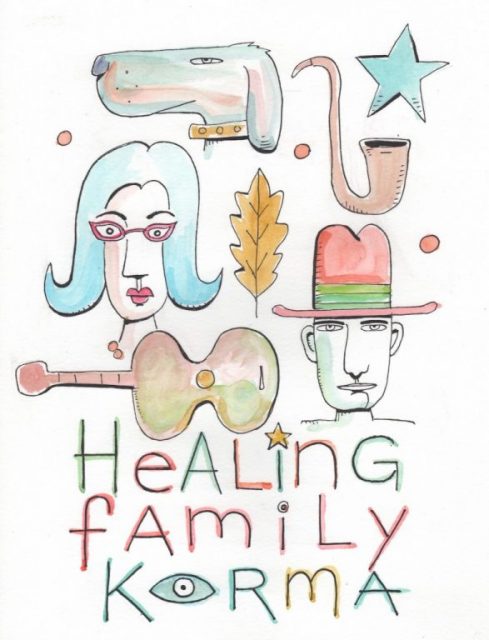In his autobiography, Memories, Dreams, Reflections, C.G. Jung—the great pioneer of the psyche—reveals the intimate connection between personal history, the soul, and spiritual awakening.
Through a fearless exploration of his memories and dreams, Jung came to the realization that, “Hidden within the patterns of your personal history is a code that, once deciphered, reveals the meaning, purpose, and direction of this life.”
Your personal history isn’t just a “story” to be transcended. Personal history is not a distraction from spiritual awakening. It’s a code to the awakened life. Which is why the tendency among spiritual seekers and teachers to ignore—and even dismiss—personal history misses the deeper point and sacred meaning of your embodiment.
Of course, identification with personal history is limiting. Your culturally conditioned personality is not your true self. But that doesn’t mean there isn’t a sacred code within the patterns of your history, as Jung suggests. The details of your history are like nuggets of gold that have been covered with “identification,” encrusted with layers of culturally structured interpretations.
The alchemy of spiritual practice reveals that even these highly conditioned patterns of personality—if you have the meditative eyes to see—hold deeper meanings and revelations.
Here’s a bit of my story: My father disappeared early in my life. I was a few months old when he and my mother separated and then divorced. His name was never mentioned. I had (and have) no conscious memory of him—just a felt sense that something was missing, that something was gone, hidden, and unspeakable. My absent father’s silence loomed large.
At the same time, I was surrounded by loving women. I lived in a sprawling New York City apartment with my mother, grandmother, and aunt. They doted on me.
So, on the one side there were all these loving women. On the other, a cold, empty, father-shaped space.
I was both an object of affection and an abandoned child. I was loved and rejected simultaneously. This paradox, while unfathomable to a young child, was fully felt in my body. The primal tension between being cherished and abandoned was encoded into my nervous system.
These kind of primal tensions are the knots at the heart of family karma. You have your own primal tension—your own spiritual paradox—that is knotted into your nervous system. This tension reflects the dynamics and relationships of your family karma and weaves itself into all of your important relationships.
Consider these questions:
- Which parental figure loomed large in your life—either through presence or absence?
- What were the unresolved wounds and unspoken struggles of your parents, grandparents, ancestors?
- How do these arise in your life and influence your path?
Remembering these tangled knots begins the decoding process. But, remembering is a meditative process of feeling the knots. It isn’t analyzing or thinking. It’s not approaching these knots as problems to be solved—that just tightens them.
The primal tensions of your family karma are not problems to be solved. What are they then?
Your primal tensions are the call of your soul. Your soul—the deep memory track of your being—is calling you through the patterns of your family karma. The tensions and patterns that seem to be getting in the way of your life actually are the way. They are the way to freedom.
As Jung suggests, your family karma is a code. That code is written into your body and woven into your neurology. You unlock this code not with thought, but with the light of meditative awareness.
Healing your family karma—unlocking your soul’s code—is a deep spiritual practice. When you learn how to shine the light of meditative awareness—feeling into the patterns of your family karma at the deepest levels of your body/mind—everything opens up.
When you infuse the primal tensions with meditative presence and loving awareness, your family karma opens into the path of liberation.
~
Author: Eric Klein
Image: Author’s Own
Editor: Leah Sugerman







Read 0 comments and reply